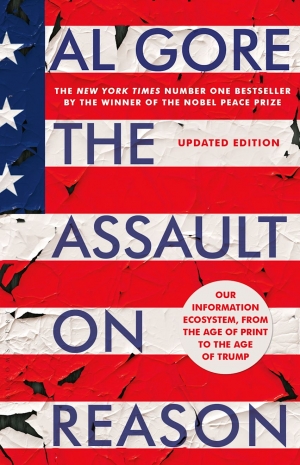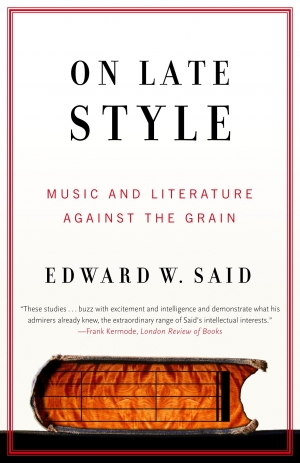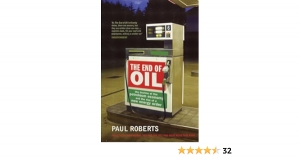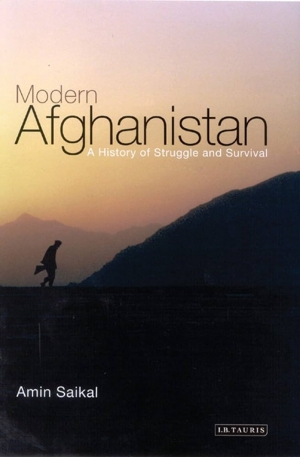Bloomsbury
Richard Ford has earned a place among the most venerable practitioners of a durable brand of American realism. His fiction draws strength from its stolid traditionalism: its faith in the idea that formal conservatism, respectful attention to the lives of ordinary people, and a line-by-line dedication to the craft of writing are the surest paths to literary significance. His aesthetic, broadly speaking, is that of a writer who reveres Anton Chekhov and John Cheever, thinks everything James Joyce wrote after The Dead was a mistake, and believes with Ernest Hemingway that the only eloquence manly enough to deserve respect is a plain-spoken eloquence.
... (read more)Ian Gibbins reviews 'Survival of the Beautiful: Art, science, and evolution' by David Rothenberg
David Rothenberg’s formal appellation at the New Jersey Institute of Technology is Professor of Philosophy and Music. He refers to himself as a ‘musician, composer, author and philosopher-naturalist’. Others have called him an ‘interspecies musician’. Rothenberg, a highly regarded jazz saxophonist and clarinettist, has published a range of books on science, technology, and music. But an ‘interspecies musician’? Much of Rothenberg’s fame stems from his improvised duets with ‘singing’ animals: whales (Whale Music, 2008), birds (Why Birds Sing, 2005) and even cicadas (see YouTube). With this background, Rothenberg is well credentialled to tackle a problem that lies at the heart of the apparent divide between science and the arts: what is beauty? Why do we find much birdsong beautiful? More critically, what do the birds themselves hear in these products of their evolutionary history? Can mere animals experience some kind of aesthetic sense, a sense of ‘beauty’?
... (read more)Don Anderson reviews 'The Finkler Question' by Howard Jacobson
They had been at school together, Julian Treslove and Samuel Finkler. ‘More rivals than friends, but rivalry too can last a lifetime.’
... (read more)Peter Menkhorst reviews 'The Wisdom of Birds: An illustrated history of ornithology' by Tim Birkhead
If the history of ornithology seems esoteric, of interest only to specialists, this is the book to open your eyes. Tim Birkhead is an eminent field ornithologist and a gifted and passionate science communicator. Each of these elements shines from this book, a wonderful distillation of the vast ornithological literature that has accumulated over the past four centuries. Effectively a history of natural history, it is a delight to read.
... (read more)David Garrioch reviews 'Napoleon: The path to power 1769–1799' by Philip Dwyer
Long hair flowing around his face, he grasps his sword firmly in one hand, the regimental banner held high in the other as he strides purposefully onto the bridge, leading his men to victory. It is one of the most familiar portraits of Napoleon Bonaparte, immortalised by the painter Antoine-Jean Gros: an image of courage, of leadership, of calm determination. And it is not quite what happened. The attack on the bridge at Arcola was a dismal failure and ended in an ignominious withdrawal, in the course of which the diminutive Bonaparte fell into a ditch and nearly drowned. It was hardly the stuff of heroic legend.
... (read more)Those who would have us believe that William Shakespeare was not the author of the poems and plays that bear his name – J. Thomas Looney and Sherwood Silliman come to mind – like to encourage the idea that almost nothing is known about his life. In fact, we have quite a lot of information about Shakespeare’s life, career and the cultural environment in which he wrote. What we do lack is any direct testimony from the man himself. His opinions are lost to us. There are no letters or journals that might illuminate his private thoughts and feelings. The basic facts of Shakespeare’s life (1564–1616) are largely set out in official documents recording births, deaths, marriages and legal transactions. If we must inquire into the nature of his personal relationships, the options are either to try and extrapolate his views from his poetry and dramatic works (an impossibly compromised practice), or else turn to circumstantial evidence and weigh up possibilities.
... (read more)When the United States invaded Iraq, it invaded a country that posed no immediate threat to it. It did so at a time when the issue about weapons of mass destruction was in the process of being resolved by the United Nations’ investigations. It invaded a country that was not a major locus of al Qaeda activity (not then) and had played no role in 9/11. The invasion diverted America’s attention and resources from groups that were responsible for 9/11, undermined its moral authority in the international community and handed terrorists a propaganda weapon. True, a tyrant was deposed, but in a way that will breed more tyrants in the future. It is little wonder that so many commentators across the political spectrum have labelled the invasion America’s worst foreign policy decision.
... (read more)Ian Donaldson reviews 'On Late Style: Music and literature against the grain' by Edward W. Said
During the last dozen years of his life, from the initial diagnosis of leukaemia in September 1991 until his death in September 2003, Edward Said continued to lead an astonishingly active life: travelling, lecturing, writing, conversing with seemingly undiminished energy, even as his physical powers sharply declined. When his New York physician gently suggested it might be wise to slow down, he replied that nothing would kill him more quickly than that; boredom seemed a more lethal adversary than the cells invading his body. What kept Said quite literally alive was an unflagging engagement with what he saw to be the most pressing cultural and political issues of his time. That engagement is fully evident in the works that have appeared since his death, such as Humanism and Democratic Criticism and From Oslo to Iraq and the Road Map, both published in 2004. On Late Style, another posthumous collection, reflects a further and unsurprising preoccupation throughout these final years. The book explores the manner in which artists and writers often acquire a new idiom or mode of expression – what Said terms a ‘late style’ – during the last stages of their creative lives.
... (read more)Peter McLennan reviews ‘The End of Oil: The decline of the petroleum economy and the rise of a new energy order’ by Paul Roberts and ‘Crude: The story of oil’ by Sonia Shah
The experts may prognosticate, but reality makes fools of them, too. Paul Roberts, in The End of Oil: The Decline of the Petroleum Economy and the Rise of a New Energy Order, reviews several scenarios for the future of oil that were advanced in late 2002 by the US National Intelligence Council. The two most bleak ones had the price of oil reaching US$50 a barrel, the first sometime between 2010 and 2015, the second somewhat earlier, following convulsions in the Middle East. As we know, US$50 was reached only a few months after The End of Oil was published in the US; at the time of writing, the price is around US$60 a barrel. Reading these two books confirms the certainty, speed and completeness of change. The unknowable for oil is: when?
... (read more)Samina Yasmeen reviews ‘Modern Afghanistan: A history of struggle and survival’ by Amin Saikal
Modern Afghanistan provides a nuanced understanding of developments in a country that has attracted the attention of academics and analysts for more than two decades. A number of good books have appeared dealing with politics in and around Afghanistan since the early 1980s. Amin Saikal’s recent book benefits from these accounts, but differs in one way: it is an insider’s account, with objectivity instilled by distance and academic training. As an Australian of Afghan origin, and as an expert on the politics of West and Central Asia, he draws upon a wealth of printed, oral, political and sociological research to delve into the creation and problems of Afghanistan.
... (read more)









